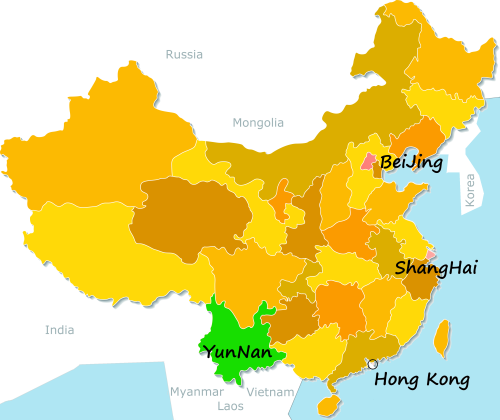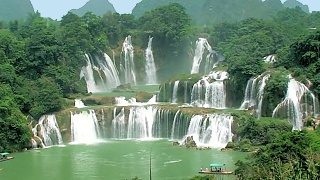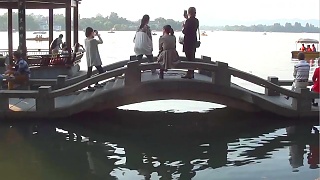
|
Places to visit in and around HangZhou
West Lake (西湖) - Xī Hú
Description: West Lake is the most iconic attraction in Hangzhou, known for its scenic beauty, historic sites, and cultural significance. Visitors can take leisurely boat cruises, stroll along the promenades, and admire picturesque pavilions, bridges, and pagodas.
Lingyin Temple (灵隐寺) - Língyǐn Sì
Description: Lingyin Temple is one of the oldest and most prestigious Buddhist temples in China, nestled at the foot of Lingyin Mountain. The temple complex features ancient halls, pagodas, and intricate stone carvings, as well as serene forested surroundings ideal for contemplation and meditation.
Qinghefang Ancient Street (清河坊古街) - Qīnghéfāng Gǔ Jiē
Description: Qinghefang Ancient Street is a historic pedestrian street lined with traditional shops, teahouses, and snack stalls. Visitors can explore Ming and Qing dynasty architecture, sample local delicacies, and shop for souvenirs such as silk, tea, and handicrafts.
Leifeng Pagoda (雷峰塔) - Léifēng Tǎ
Description: Leifeng Pagoda is a historic tower located on Sunset Hill overlooking West Lake. Originally built in the 10th century, the pagoda offers panoramic views of the lake and surrounding scenery. Visitors can climb to the top for breathtaking vistas and learn about the pagoda's storied history.
Hangzhou Songcheng Park (杭州宋城景区) - Hángzhōu Sòngchéng Jǐngqū
Description: Hangzhou Songcheng Park is a large-scale cultural theme park showcasing the rich heritage and traditions of ancient China. The park features replica ancient streets, performances, and attractions, allowing visitors to experience the charm of traditional Chinese culture.
Longjing Tea Plantation (龙井茶园) - Lóngjǐng Cháyuán
Description: Longjing Tea Plantation is famous for producing Longjing (Dragon Well) tea, one of China's most prized green teas. Visitors can tour the tea fields, learn about tea cultivation and processing, and sample freshly brewed Longjing tea while enjoying scenic views of the countryside.
Hangzhou Botanical Garden (杭州植物园) - Hángzhōu Zhíwù Yuán
Description: Hangzhou Botanical Garden is a tranquil oasis featuring diverse plant collections, landscaped gardens, and nature trails. Visitors can explore themed gardens, conservatories, and aquatic habitats, as well as enjoy picnics, birdwatching, and photography amidst lush greenery.
Hefang Street (河坊街) - Héfāng Jiē
Description: Hefang Street is a vibrant pedestrian thoroughfare in the heart of Hangzhou's historic district. The street is lined with shops selling traditional crafts, snacks, and souvenirs, as well as teahouses, street performers, and cultural attractions.
Hangzhou Zoo (杭州动物园) - Hángzhōu Dòngwù Yuán
Description: Hangzhou Zoo is home to a diverse collection of animal species from around the world, including rare and endangered species. Visitors can observe animals in naturalistic habitats, attend feeding sessions and animal shows, and enjoy family-friendly attractions such as playgrounds and picnic areas.
China National Tea Museum (中国茶叶博物馆) - Zhōngguó Cháyè Bówùguǎn
Description: China National Tea Museum is dedicated to the history, culture, and art of tea in China. The museum features informative exhibits, interactive displays, and traditional tea ceremonies, providing insights into the significance of tea in Chinese society and its cultural significance.
Yuhuang Mountain (玉皇山) - Yùhuáng Shān
Description: Yuhuang Mountain is a scenic area known for its natural beauty, religious sites, and hiking trails. Visitors can ascend to the mountain peak for panoramic views of Hangzhou and the Qiantang River, explore ancient temples and shrines, and enjoy outdoor activities such as hiking, picnicking, and birdwatching.
Hangzhou Grand Canal (杭州大运河) - Hángzhōu Dà Yùnhé
Description: Hangzhou Grand Canal is a UNESCO World Heritage Site and one of the longest and oldest canals in the world. Visitors can take boat cruises along the canal, passing through historic districts, scenic landscapes, and cultural landmarks, while learning about the canal's role in China's history and economy.
Hangzhou Xixi National Wetland Park (西溪国家湿地公园) - Xīxī Guójiā Shīdì Gōngyuán
Description: Hangzhou Xixi National Wetland Park is a vast natural reserve featuring wetlands, waterways, and diverse ecosystems. Visitors can explore the park's scenic trails, wooden boardwalks, and traditional water villages, as well as enjoy boating, birdwatching, and nature photography amidst pristine surroundings.
Hangzhou China Silk Town (中国丝绸城) - Zhōngguó Sīchóu Chéng
Description: Hangzhou China Silk Town is a commercial district specializing in silk products, textiles, and silk-related crafts. Visitors can shop for high-quality silk fabrics, clothing, accessories, and watch demonstrations of silk production techniques such as weaving and embroidery. The town also features museums, galleries, and cultural exhibits showcasing the history and craftsmanship of silk in Hangzhou.
Wushan Square (吴山广场) - Wúshān Guǎngchǎng
Description: Wushan Square is a central plaza in Hangzhou surrounded by historical buildings, modern landmarks, and scenic vistas. Visitors can enjoy leisurely walks, cultural events, and panoramic views of West Lake, as well as explore nearby attractions such as museums, theaters, and shopping districts.
China National Silk Museum (中国丝绸博物馆) - Zhōngguó Sīchóu Bówùguǎn
Description: China National Silk Museum is dedicated to the history, art, and technology of silk production in China. The museum features extensive collections of silk artifacts, textiles, and cultural relics, as well as interactive exhibits, workshops, and demonstrations highlighting the craftsmanship and significance of silk in Chinese culture.
Hangzhou Chenghuang Pavilion (杭州城隍阁) - Hángzhōu Chénghuáng Gé
Description: Hangzhou Chenghuang Pavilion is a historic landmark dating back to the Song Dynasty, located in the heart of the city. The pavilion offers panoramic views of Hangzhou's skyline, West Lake, and surrounding landmarks, as well as cultural exhibits, art displays, and traditional performances celebrating the city's heritage.
Hangzhou Confucius Temple (杭州文庙) - Hángzhōu Wénmiào
Description: Hangzhou Confucius Temple is a tranquil sanctuary dedicated to the teachings and legacy of Confucius. The temple complex features traditional architecture, landscaped gardens, and cultural relics, providing a peaceful retreat for contemplation, study, and cultural exploration amidst the bustling city.
Hangzhou Olympic Sports Center Stadium (杭州奥体中心) - Hángzhōu Ào Tǐ Zhōngxīn
Description: Hangzhou Olympic Sports Center Stadium is a state-of-the-art sports and entertainment venue hosting major events, concerts, and sporting competitions. Visitors can attend live performances, sports matches, and cultural festivals, as well as explore the surrounding parklands, recreation facilities, and dining options.
Hangzhou National Tea Museum (杭州茶叶博物馆) - Hángzhōu Cháyè Bówùguǎn
Description: Hangzhou National Tea Museum is dedicated to the history, culture, and art of tea in China. The museum showcases tea artifacts, historical exhibits, and interactive displays, as well as traditional tea ceremonies, tastings, and workshops, offering insights into the significance of tea in Chinese society and its cultural heritage.
Hangzhou Zoo (杭州动物园) - Hángzhōu Dòngwù Yuán
Description: Hangzhou Zoo is home to a diverse collection of animal species from around the world, including rare and endangered species. Visitors can observe animals in naturalistic habitats, attend feeding sessions and animal shows, and enjoy family-friendly attractions such as playgrounds and picnic areas.
Hangzhou Museum (杭州博物馆) - Hángzhōu Bówùguǎn
Description: Hangzhou Museum is a cultural institution showcasing the history, art, and heritage of Hangzhou and the surrounding region. The museum's exhibits include archaeological artifacts, fine art collections, and cultural relics, as well as interactive displays, educational programs, and temporary exhibitions highlighting various aspects of Hangzhou's rich cultural legacy.
|

 The exquisitely beautiful YuanYang rice terraces, YunNan province
The exquisitely beautiful YuanYang rice terraces, YunNan province




